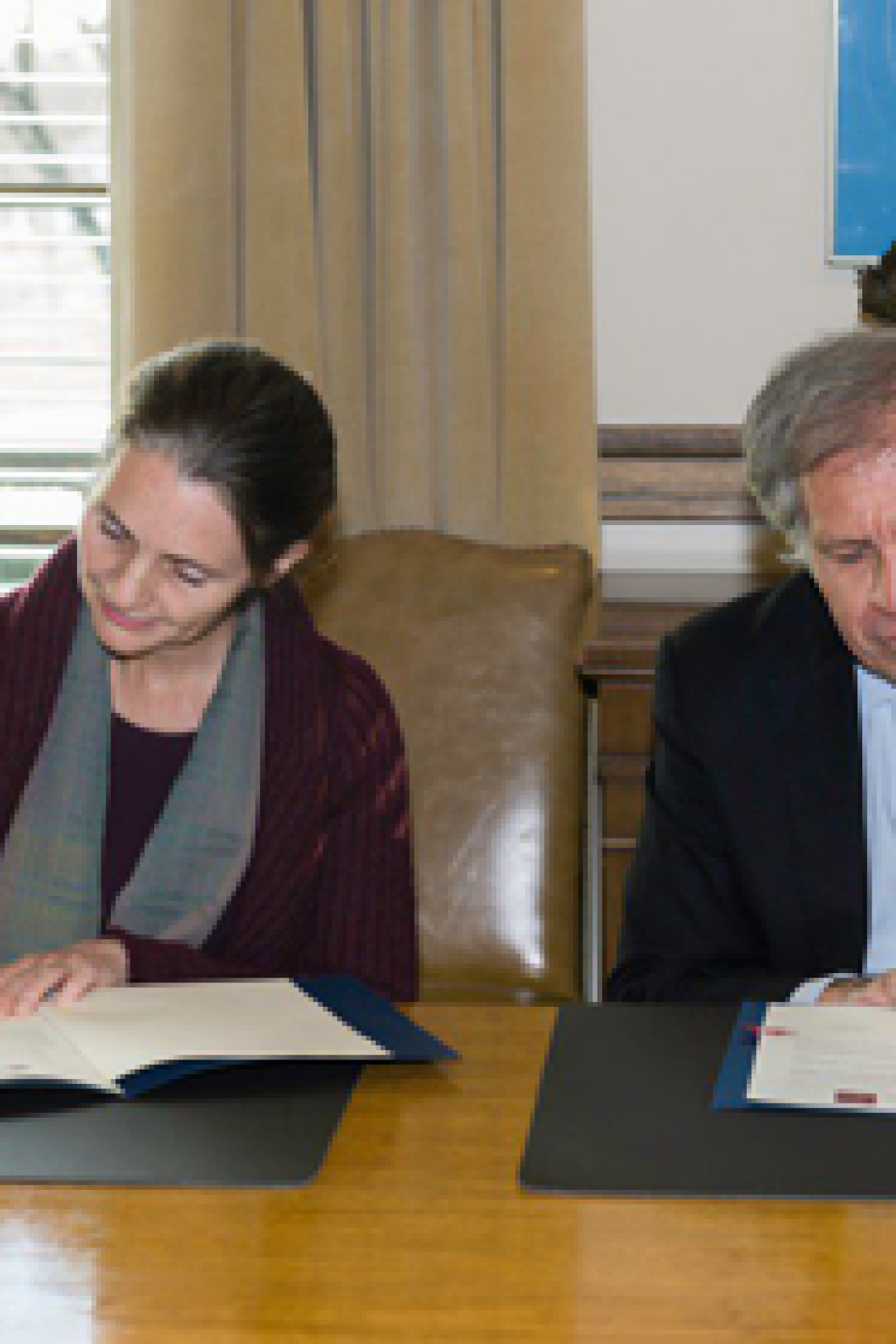OAS and OPHI sign Joint Declaration on multidimensional poverty
The Oxford Poverty and Human Development Initiative (OPHI) and the Organization of American States (OAS) signed a Joint Declaration on 9 March to promote the Multidimensional Poverty Index (MPI) both nationally and regionally in the Americas.
In a formal ceremony at the headquarters of the Organization of American States, OAS Secretary General Luis Almagro said it was essential for international organisations such as the OAS and OPHI to join forces to promote the adoption of the MPI as a technical tool that allows governments to better understand poverty and provides the data for better monitoring of the Sustainable Development Goals and the 2030 Agenda.
The MPI is a way of measuring poverty that goes beyond traditional income-based measures to show the combined disadvantages poor people experience across different areas of their lives, including education, health and living standards. The index was developed by OPHI, a research group based at ODID, and has been published in the Human Development Report since 2010.
OPHI Director Sabina Alkire noted that OPHI has already worked with the OAS in promoting south-south exchange and training. She highlighted that 12 Latin American countries would participate in a one-week OPHI-led seminar starting 13 March on the MPI method in Bogotá, Colombia. The training is supported by the OAS, as well as by the Government of Colombia.
The Joint Declaration establishes a formal working group between the OAS and OPHI to develop ways of supporting the work of the Multidimensional Poverty Peer Network, OPHI and the OAS.
The declaration calls for support of capacity building in OAS member countries to help them adopt effective public policies to tackle poverty and promote human development. This OAS-OPHI collaboration will facilitate interactions, training and south-south exchange, as well as joint research projects and joint regional events – all with the aim of promoting inclusive development through better measurement and more targeted social programmes to tackle poverty in its many dimensions.

